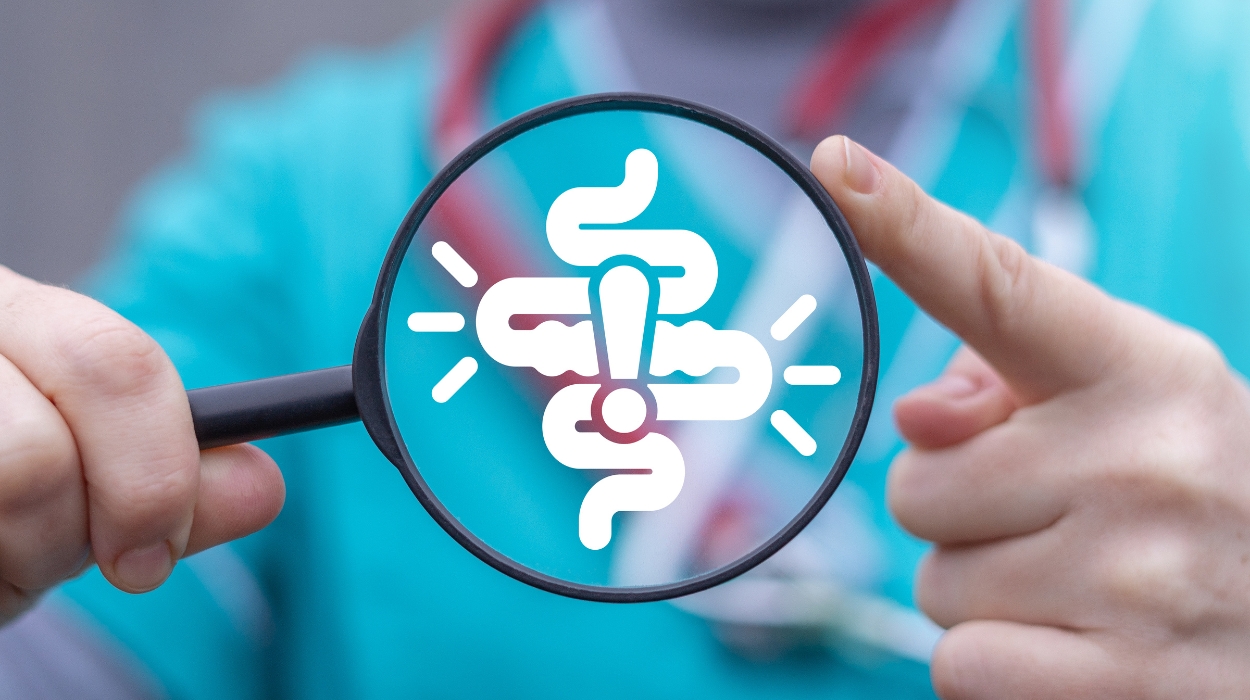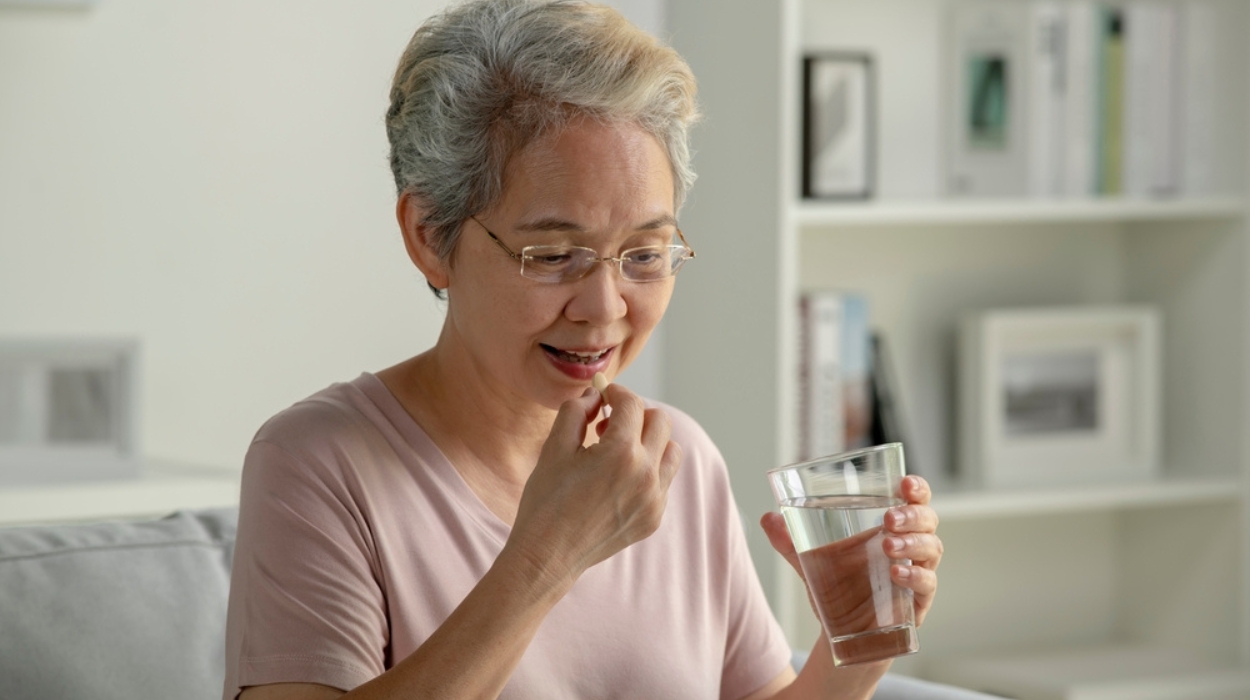Irritable bowel syndrome[1] or IBS, is a chronic functional digestive disorder. This means the digestive system looks healthy but doesn’t function normally. IBS could be due to muscle contraction issues, an unhealthy gut microbiome, infection, genetics, or a faulty nervous system.
There are several methods related to how to detox your body to treat IBS.
Some people go natural, while others prefer using manufactured products. Among the many products available, you will come across remedies that detoxify and heal several body systems. Our focus today is cleaning the gut! And not just disarming pathogens but treating irritable bowel syndrome.
Irritable bowel syndrome is manageable, and here we’ll highlight five ways. Keep reading to learn more about irritable bowel syndrome treatments.
Treatments For Irritable Bowel Syndrome
Here are the treatments of irritable bowel syndrome:
- Medications
- Psychotherapy.
- Alternative therapies
- Lifestyle changes.
- Biofeedback.
Irritable Bowel Syndrome Treatments

Since IBS has several different causes, the treatments vary depending on the cause. Here are some remedies:
Medications
There are two categories of medications to treat IBS: over-the-counter (OTC) medications that you can purchase directly at a pharmacy or prescription medication that you are given after an in-depth discussion with a doctor.
OTC Medications
These are the medicines you get from pharmacies and local clinics without a prescription.
Laxatives
Constipation is a common IBS-C symptom. IBS-C is constipation-dominant IBS, while IBS-D is diarrhea-dominant. A quick remedy is using OTC laxatives[2] for constipation-dominant IBS. Several types of laxatives exist to aid IBS constipation, helping stool move through the body more smoothly and painlessly in different ways.
Antidiarrheals
These OTC medications help control diarrhea, one of the disruptive IBS-D symptoms. Antidiarrheals[3] slow down bowel movements to provide relief from urgent and frequent trips to the bathroom. They improve stool consistency and relieve abdominal pain.
Pain Relievers
General pain meds are not typical medications for irritable bowel syndrome. However, they may alleviate IBS abdominal pain, cramping, and discomfort. The best kinds are those that target the GI tract and peripheral nerves.[4]
Pain relievers are a short-term solution offering only temporary numbing effects. To be fully cured, you may need prescribed medications.
Prescription Medications
Prescribed irritable bowel syndrome medications are only available after a doctor has prescribed them.
Antispasmodics
Prescription antispasmodic medications[5] are smooth muscle relaxants that aid GI tract muscle relaxation. They can help reduce abdominal cramping and pain in individuals with IBS.
Antidepressant Medications
Certain antidepressants[6] are prescribed to manage IBS symptoms. These medications work by modulating severe pain signals and improving overall well-being.
Probiotics
Prescription-strength probiotics[7] are sometimes prescribed to balance gut bacteria and ease IBS digestive symptoms. These can be especially useful for those with explosive diarrhea.[8]
Bile Acid Binders
Doctors may prescribe bile acid binders if you suffer from IBS-D. Bile acid breaks down fats in the small intestines, but malabsorption[9] leads to the acids reaching the colon. The acids irritate the colon walls and attract water back into the colon, causing diarrhea. The binders may help absorb excess bile acids in the intestines, reducing diarrhea.
Psychotherapy
Psychotherapy is a possible treatment for irritable bowel syndrome that addresses the emotional stress often linked to IBS symptoms. Stress affects your nervous system, may disrupt the gut microbiome,[10] and promote unhealthy lifestyle choices– all possible IBS causes.
One psychotherapy treatment trained therapists employ is cognitive behavioral therapy or CBT. CBT may help you reduce anxiety and stress,[11] improving overall wellbeing. This treatment encompasses exploring the impact of emotional stress on IBS and providing coping mechanisms to curb it.
There is also gut-directed hypnotherapy[12] among the new treatments for irritable bowel syndrome. This treatment comprises hypnosis to help you relax your digestive system. It also aids in reducing inflammation, stress management,[13] and improving gut function.
Alternative Therapies
Alternative treatments for irritable bowel syndrome include acupuncture,[14] mindfulness meditation,[15] and yoga.[16]
These practices have numerous clinical trials supporting their aid in stress reduction. Decreasing stress may promote relaxation and improve gut-brain communication. They may also help manage abdominal pain and discomfort.
Additionally, herbal remedies like peppermint oil[17] show promise in balancing gut flora and easing digestive distress. Additional herbal remedies[18] are aloe vera, which alleviates IBS-related constipation, turmeric for inflammation, and St. John’s wort for stress relief.
Lifestyle Changes
Our gut health is highly dependent on what we consume. So much so that positive life changes can go a long way in alleviating and treating IBS symptoms. Here is how dietary and activity modifications can help.
Dietary Changes
IBS dietary changes treatment may involve:
- Making dietary changes to eliminate trigger foods.
- Adopting a low-FODMAP diet.
- Increasing fiber intake.
These modifications may alleviate IBS symptoms like abdominal pain and irregular bowel movements.
Trigger foods are those that aggravate IBS symptoms. For example, if you suffer from IBS and are also lactose intolerant, you may experience more gas.[19] Other trigger foods are caffeine, carbonated drinks, fried foods, fatty meals, and wheat if you have celiac disease.
Certain foods high in fermentable oligosaccharides, disaccharides, monosaccharides, and polyols are poorly absorbed in the small intestine. When they reach the colon, they ferment, promoting bloating, abdominal pain, watery stools, and colon wall irritation. They can cause gas, back pain, and abdominal discomfort and might also cause diarrhea since they are highly osmotic.
Osmotic molecules disperse from a region of high concentration to a region of lower water concentration. In this case, they draw in water through the intestinal lining, making the fecal matter watery and runny. A low-FODMAP diet is significantly helpful in treating IBS.[20]
Fiber-rich foods such as leafy greens and fruits promote stool bulking, hence regular bowel movements. These specific foods also help nourish the gut microbiome[21] with good bacteria.Moreover, adding gut dietary supplements and certain probiotics may help balance gut bacteria and promote digestive comfort. Staying hydrated[22] and eating smaller, more frequent meals[23] can relieve symptoms such as constipation and dehydration.
Exercise
Regular exercise helps regulate bowel movements[24] and improve overall gut health. Also, incorporating stress-reduction yoga physical movements can further enhance symptom control.
Biofeedback
Biofeedback[25] is also one of the newer irritable bowel syndrome therapies. This treatment entails a therapist helping you regain control over physiological responses. In the case of IBS, the therapy focuses on muscle tension in the gut. By learning to recognize and regulate stress-related triggers that often exacerbating IBS symptoms, one can reduce pain and abdominal discomfort and improve bowel function.
Treatments Irritable Bowel Syndrome Tips

Now that you have five of the best medical and home treatments for irritable bowel syndrome, you should use them appropriately. Here are a few tips:
- Adjust your diet to include fiber-rich foods, limit trigger foods, and consider a low-FODMAP diet. These may alleviate IBS symptoms like abdominal pain and irregular bowel habits.
- Never use painkillers for an extended time to treat undiagnosed gut disorders you suspect to be IBS.
- Live an active life by regularly exercising to improve gut health.
- Try to stay stress-free by practicing stress-reduction techniques like mindfulness and maintaining a consistent sleep schedule to help manage symptoms.
- Explore complementary approaches like acupuncture, biofeedback, herbal remedies like peppermint oil, and mind-body practices to relieve stress and symptoms.
- Stay hydrated, consume smaller, frequent meals, and avoid overeating to promote digestive comfort.
- Always consult a healthcare provider for personalized treatment recommendations and to rule out other underlying conditions. They may employ blood tests to eliminate other bowel disorders. Medical history, family history, blood, and physical exams may confirm or eliminate colon cancer, celiac disease, or inflammatory bowel disease.
Conclusion
In closing, managing irritable bowel syndrome may require a multi-faceted approach and finally answer the question: Why am I so gassy?
Some main ones include dietary changes, lifestyle modifications, medications, mental health therapies, and alternative therapies. The array of treatments available helps you select an IBS treatment that works for you. Since the condition is a significantly different experience for everyone, these and other treatments highlight the importance of personalized care.
By working closely with healthcare providers, you can tailor your treatment plans to address specific symptoms and needs. With advancements in medical knowledge and a growing understanding of the condition, there is hope for people with IBS to find relief. We hope your exploration of the diverse options discussed will help you lead to better digestive health.
Frequently Asked Questions
Treatment for IBS varies, but dietary changes, stress management, and medications like antispasmodics or antidepressants are commonly used.
At-home treatments for IBS include dietary modifications, stress reduction, and over-the-counter medications like fiber supplements or antidiarrheals.
The first-line treatment for IBS often involves dietary adjustments, fiber supplements, and lifestyle changes. Consult a healthcare provider for personalized guidance.
Over-the-counter medications like Imodium or psyllium can relieve bowel symptoms, but consult a healthcare provider for suitability and dosage.
Stress can exacerbate IBS symptoms. Stress management through techniques like mindfulness, yoga, and therapy can help alleviate symptoms and improve overall well-being.
Low-FODMAP and high fiber can be effective for IBS. Consult a dietitian for personalized guidance. It involves avoiding certain fermentable foods initially and gradually reintroducing them to identify triggers.
 Evidence Based
Evidence Based
